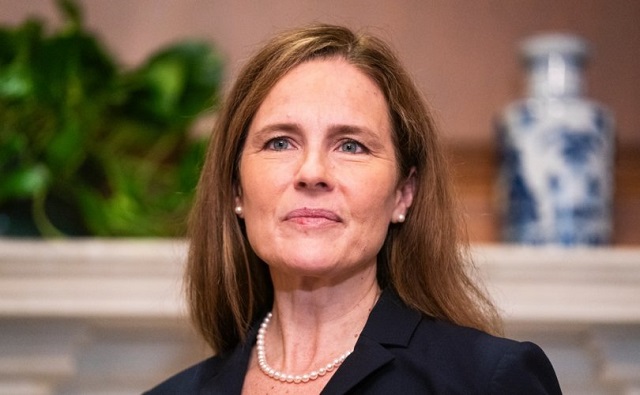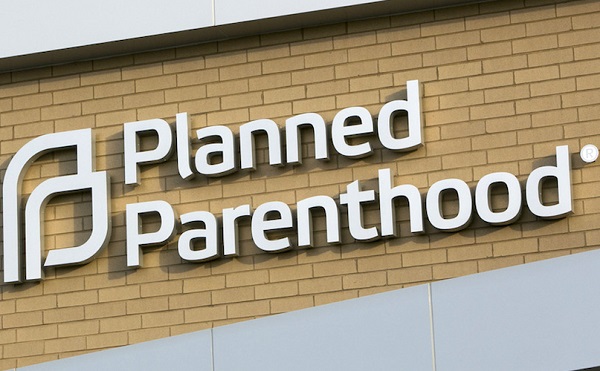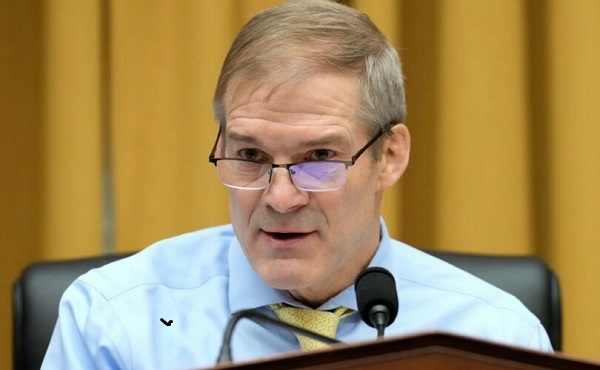International
Supreme Court unanimously rules that public officials can be sued for blocking critics on social media

From LifeSiteNews
Supreme Court Justice Amy Coney Barrett Justice noted that the personal social media accounts of public officials often present an ‘ambiguous’ status because they mix official announcements with personal content.
The United States Supreme Court ruled unanimously on Friday that government officials who post about work-related topics on their personal social media accounts can be held liable for violating the First Amendment rights of constituents by blocking their access or deleting their critical comments.
In a 15-page opinion, Justice Amy Coney Barrett noted that the personal social media accounts of public officials often present an “ambiguous” status because they mix official announcements with personal content.
The court ruled in two cases where people were blocked after leaving critical comments on social media accounts of public officials.
The first case involved two elected members of a California school board — the Poway Unified School District Board of Trustees — who blocked concerned parents from their Facebook and Twitter accounts after leaving critical comments.
The court upheld the 9th U.S. Circuit Court of Appeals ruling that said the board members had violated the parents’ free speech rights.
The second case before the court concerned James Freed, Port Huron, Michigan’s city manager who had blocked constituent Kevin Lindke from commenting on his Facebook page after deleting his remarks about the city’s COVID-19 pandemic policies.
Lindke believed that Freed had violated the First Amendment by doing so and sued Freed.
Freed maintained that he launched his Facebook page long before becoming a public official, arguing that most of the content on his account concerned family-related matters.
Justice Barrett explained:
Like millions of Americans, James Freed maintained a Facebook account on which he posted about a wide range of topics, including his family and his job. Like most of those Americans, Freed occasionally received unwelcome comments on his posts. In response, Freed took a step familiar to Facebook users: He deleted the comments and blocked those who made them.
For most people with a Facebook account, that would have been the end of it. But Kevin Lindke, one of the unwelcome commenters, sued Freed for violating his right to free speech. Because the First Amendment binds only the government, this claim is a nonstarter if Freed posted as a private citizen. Freed, however, is not only a private citizen but also the city manager of Port Huron, Michigan — and while Freed insists that his Facebook account was strictly personal, Lindke argues that Freed acted in his official capacity when he silenced Lindke’s speech.
Barrett concluded:
When a government official posts about job-related topics on social media, it can be difficult to tell whether the speech is official or private. We hold that such speech is attributable to the State only if the official (1) possessed actual authority to speak on the State’s behalf, and (2) purported to exercise that authority when he spoke on social media.
In the end, the high court sent Lindke’s case back to the Sixth Circuit Federal Appeals Court for a second look.
Perhaps reflecting continued ambiguity following the court’s ruling, both defendant Freed and plaintiff Lindke declared victory.
“I am very pleased with the outcome the justices came to,” Freed told ABC News in a statement. “The Court rejected the plaintiff’s appearance test and further refined a test for review by the Sixth Circuit. We are extremely confident we will prevail there once more.”
Lindke was more effusive and told ABC News that he was “ecstatic” with the court’s decision.
“A 9-0 decision is very decisive and is a clear indicator that public officials cannot hide behind personal social media accounts when discussing official business,” said Lindke.
Legal experts called attention to the persistence of gray area in the law regarding social media due to the narrowness of the court’s decision.
“This case doesn’t tell us much new about how to understand the liability of the 20 million people who work in local, state, administrative or federal government in the U.S. … just that the question is complicated,” Kate Klonick, an expert on online-platform regulation who teaches at St. John’s Law School, told The Washington Post.
Katie Fallow, senior counsel for the Knight First Amendment Institute at Columbia University, told the Post that the court’s ruling does not sufficiently address public officials’ widespread use of personal “shadow accounts,” which constituents often perceive as official.
Fallow said the court was “right to hold that public officials can’t immunize themselves from First Amendment liability merely by using their personal accounts to conduct official business.”
We are disappointed, though, that the Court did not adopt the more practical test used by the majority of the courts of appeals, which appropriately balanced the free speech interests of public officials with those of the people who want to speak to them on their social media accounts.
According to The Hill, the Biden administration and a bipartisan group of 17 states and National Republican Senatorial Committee sided with officials, arguing in favor of their blocks, while the ACLU backed the cons
Friday’s ruling is only the first of several this term that deal with the relationship between government and social media.
“On Feb. 26, the justices heard argument[s] in a pair of challenges to controversial laws in Florida and Texas that seek to regulate large social-media companies,” explained Amy Howe on Scotusblog.com. “And on Monday the justices will hear oral arguments in a dispute alleging that the federal government violated the First Amendment by pressuring social media companies to remove false or misleading content. Decisions in those cases are expected by summer.”
Business
Trump’s government efficiency department plans to cut $500 Billion in unauthorized expenditures, including funding for Planned Parenthood

From LifeSiteNews
Elon Musk and Vivek Ramaswamy shared their plans to ‘take aim’ at ‘500 billion plus’ in federal expenses, including ‘nearly $300 million’ to ‘progressive groups like Planned Parenthood.’
Elon Musk and Vivek Ramaswamy are planning to ax taxpayer funding for Planned Parenthood as part of their forthcoming work for the next Trump administration, they revealed in a Wednesday op-ed in The Wall Street Journal.
The businessmen have been appointed by President Donald Trump to lead a new Department of Government Efficiency (DOGE), which will work from outside the official government structure to cut wasteful government spending and excess regulations, as well as “restructure federal agencies,” as Trump announced last week on Truth Social.
Musk and Ramaswamy shared Wednesday that as part of their work at DOGE to downsize government spending, they will be “taking aim at the $500 billion plus in annual federal expenditures that are unauthorized by Congress or being used in ways that Congress never intended,” thereby “delivering cost savings for taxpayers.”
They specifically called out Planned Parenthood as one institution that will lose taxpayer funding once DOGE kicks into gear. In their op-ed, the duo said the federal expenditures they plan on cutting includes the “nearly $300 million” dedicated “to progressive groups like Planned Parenthood.”
Musk and Ramaswamy also reportedly will take aim at the “$535 million a year to the Corporation for Public Broadcasting and $1.5 billion for grants to international organizations,” according to Catholic Vote, although they have not shared all of the federal spending they plan to cut or reduce.
“With a decisive electoral mandate and a 6-3 conservative majority on the Supreme Court, DOGE has a historic opportunity for structural reductions in the federal government,” the business duo wrote. “We are prepared for the onslaught from entrenched interests in Washington. We expect to prevail.”
Mogul and X owner Musk, who was outspoken before his DOGE appointment about the big problem of waste, noted last week that if the government is not made efficient, the country will go “bankrupt.”
He reposted a clip from a recent talk he gave in which he explained that not only is our defense budget “pretty gigantic” — a trillion dollars —but the interest the U.S. now owes on its debt is higher than this.
“This is not sustainable. That’s why we need the Department of Government Efficiency,” Musk said.
Censorship Industrial Complex
Congressional investigation into authors of ‘Disinformation Dozen’ intensifies

From LifeSiteNews
By Dr. Michael Nevradakis of The Defender
The Center for Countering Digital Hate, authors of ‘The Disinformation Dozen,’ faces a Nov. 21 deadline to provide Congress with documents related to its alleged collusion with the Biden administration and social media platforms to censor online users.
The Center for Countering Digital Hate (CCDH), authors of the “Disinformation Dozen,” faces a Nov. 21 deadline to provide Congress with documents related to its alleged collusion with the Biden administration and social media platforms to censor online users.
Rep. Jim Jordan (R-Ohio), chairman of the House Judiciary Committee, on Nov. 7 subpoenaed CCDH as part of an ongoing congressional investigation, launched in August 2023, into the nonprofit’s censorship-related activities.
The subpoena requests all communications and documents “between or among CCDH, the Executive Branch, or third parties, including social media companies, relating to the identification of groups, accounts, channels, or posts for moderation, deletion, suppression, restriction, or reduced circulation.”
The subpoena also requests all records, notes, and other “documents of interactions between or among CCDH and the Executive Branch referring or relating to ‘killing’ or taking adverse action against Elon Musk’s X social media platform (formerly Twitter).”
CCDH previously included Kennedy on its “Disinformation Dozen” list, published in March 2021, of the 12 “leading online anti-vaxxers.”
Leaked CCDH documents released last month by investigative journalists Paul D. Thacker and Matt Taibbi revealed that CCDH sought to “kill” Twitter and launch “black ops” against Robert F. Kennedy Jr., President-elect Donald J. Trump’s nominee for secretary of the U.S. Department of Health and Human Services (HHS).
CCDH included Kennedy, founder of Children’s Health Defense (CHD), on its list of “The Disinformation Dozen” when he was still chairman of CHD.
“Black ops” are defined as a “secret mission or campaign carried out by a military, governmental or other organization, typically one in which the organization conceals or denies its involvement.”
A subsequent report by Taibbi and Thacker showed that CCDH employed tactics it initially developed to help U.K. Prime Minister Keir Starmer and the U.S. Democratic Party, to target Musk, Kennedy and others.
CCDH used ‘explicit military terminology’ to target speech
Thacker told The Defender the leaked documents “definitely spurred” Jordan’s subpoena.
Sayer Ji, the founder of GreenMedInfo, was also listed among “The Disinformation Dozen.” He said the leaked documents were “chilling” and that CCDH’s efforts were part of “the largest coordinated foreign influence operation targeting American speech since 1776.”
Ji told The Defender:
The leaked documents confirm what we experienced firsthand: CCDH wasn’t just targeting 12 individuals – we were test cases for deploying military-grade psychological operations against civilians at scale.
Just as the British Crown once used seditious libel laws to silence colonial dissent, CCDH’s operation expanded to silence hundreds of millions globally, from doctors sharing clinical observations to parents discussing vaccine injuries.
Ohio physician Dr. Sherri Tenpenny, also on “The Disinformation Dozen” list, told The Defender, “The exposure of the manipulation that went on behind the scenes to silence us is what we suspected, and now we know … We have the sad last laugh against their attacks. They are the ones with blood on their hands.”
Ji said CCDH’s internal communications reveal not just bias, “but explicit military terminology – ‘black ops,’ ‘target acquisition,’ ‘strategic deployment’ – coordinated between Five Eyes networks and dark money interests to target constitutionally protected speech.”
Writing on GreenMedInfo, Ji said, “CCDH’s ‘black ops’ approach includes coordinated media smears, economic isolation, and digital censorship.” Ji said CCDH’s activities represent “a new level of institutionalized power directed at civilian targets, often bypassing constitutional safeguards.”
Thacker said Jordan’s investigation should expand to include CCDH’s “black ops.”
“I don’t want to speculate on what CCDH was doing with ‘black ops’ against Kennedy,” Thacker said. “I think that should be explored by a congressional committee, with CCDH CEO Imran Ahmed put under oath,” Thacker said.
CCDH facing multiple lawsuits, possible Trump administration investigation
Jordan’s subpoena is the latest in a series of legal challenges for CCDH. According to GreenMedInfo, the organization faces several lawsuits and government investigations.
Following last month’s CCDH document leak, the Trump campaign said an investigation into CCDH “will be at the top of the list.”
The campaign also filed a complaint against the Harris campaign with the Federal Election Commission, “for making and accepting illegal foreign national contributions” – namely, from the U.K. Labour Party.
This followed the release of evidence indicating that the Biden administration coordinated with the U.K. Foreign Office as part of what GreenMedInfo described “as a systematic censorship regime involving CCDH and affiliated organizations.”
A lawsuit Musk filed against CCDH in July 2023 for allegedly illegally obtaining data and using it in a “scare campaign” to deter advertisers from X will likely proceed on appeal. A federal court initially dismissed the lawsuit in March.
Discovery in the Missouri v. Biden free speech lawsuit may also “shed further light and legal scrutiny on the critical role that CCDH played in allegedly suppressing and violating the civil liberties of U.S. citizens,” according to GreenMedInfo.
CCDH, others flee X in protest
Earlier this week, CCDH deleted its account on X, the platform it wanted to “kill.”
Writing on Substack, Ji said CCDH’s departure from X, during the same week Trump nominated Kennedy to lead HHS, represents a “seismic shift” and marks “a watershed moment, signaling the unraveling of entrenched systems of control and the rise of a new era for health freedom and open discourse.”
Several other left-leaning organizations and individuals, including The Guardian and journalist Don Lemon, also said they will stop using X, after Trump tapped Musk to lead a federal agency tasked with increasing government efficiency.
According to NBC News, many ordinary users are also fleeing X, citing “bots, partisan advertisements and harassment, which they all felt reached a tipping point when Donald Trump was elected president last week with Musk’s support.”
But according to Adweek, X’s former top advertisers, including Comcast, IBM, Disney, Warner Bros. Discovery and Lionsgate Entertainment, resumed ad spending on the platform this year, but at “much lower rates” than before.
“Elon Musk’s ties with Donald Trump might spur some advertisers to think spending on X is good for business,” Adweek reported.
Thacker said CCDH’s deletion of its X account was “aligned” with the departure of “other organizations and ‘journalists’ aligned with the Democratic Party.” He said it appears to have been a “coordinated protest.”
Ji said organizations like CCDH view X “as an existential threat.” He added:
Having experienced both Twitter 1.0’s AI-driven censorship system and X’s more open environment, I understand exactly why CCDH sees X as an existential threat. X represents what Twitter 1.0’s embedded censorship infrastructure was designed to prevent: a truly free digital public square.
Under Musk’s commitment to free speech, their tactical advantage disappeared. They’re not leaving because X is toxic. They’re leaving because they can’t control it.
Online censorship ‘may no longer be sustainable under intensified scrutiny’
According to GreenMedInfo, CCDH’s departure from X “appears to reflect an internal recognition that their operational model – characterized by critics as a US-U.K. intelligence ‘cut-out’ facilitating unconstitutional suppression of civil liberties – may no longer be sustainable under intensified scrutiny.”
In recent months, several mainstream media outlets have corrected stories that relied upon CCDH reports claiming “The Disinformation Dozen” was responsible for up to two-thirds of vaccine-related “misinformation” online.
According to Thacker, this reflects an increasing awareness by such outlets that readers are turning their backs on such reporting.
“The outlets that promoted CCDH propaganda are being investigated by their own readers, who are fleeing in droves. Readers are voting against this type of propaganda by refusing to subscribe to these media outlets,” Thacker said.
Yet, “many outlets continue to host these demonstrably false narratives without correction,” Ji said.
According to Ji, these false narratives resulted in medical professionals fearing the loss of their licenses for expressing non-establishment views, self-censorship among scientists “to avoid career destruction,” suppression of “critical public health discussions” and the labeling of millions of posts as “misinformation.”
“This isn’t just about suppressing speech. It’s about establishing a new form of digital control that echoes the colonial-era suppression our founders fought against,” Ji said.
“CCDH has polluted political discourse by pretending there is some absolute definition of the term ‘misinformation’ and that they hold the dictionary,” Thacker said. “That’s nonsense. They spread hate and misinformation to attack perceived political enemies of the Democratic Party.”
Ji called upon Congress to investigate “The full scope of those silenced beyond the ‘Disinformation Dozen,’” the “systematic suppression of scientific debate,” “media organizations’ role in amplifying foreign influence operations” and “dark money funding networks” supporting such organizations.
Thacker said Congress should examine possible CCDH violations of the Foreign Agents Registration Act. “We need to also look at how much foreign money they took in and whether we as a nation are comfortable with foreign influence trying to alter the law and political discussions.”
“The fight isn’t just about correcting past wrongs or personal vindication. It’s about preserving fundamental rights to free speech and scientific inquiry in the digital age,” Ji said. “If we don’t address this systematic abuse of power, we risk surrendering the very freedoms our founders fought to establish.”
This article was originally published by The Defender – Children’s Health Defense’s News & Views Website. Please consider subscribing to The Defender or donating to Children’s Health Defense.
-

 ESG2 days ago
ESG2 days agoCan’t afford Rent? Groceries for your kids? Trudeau says suck it up and pay the tax!
-

 John Stossel2 days ago
John Stossel2 days agoGreen Energy Needs Minerals, Yet America Blocks New Mines
-

 Daily Caller2 days ago
Daily Caller2 days agoLos Angeles Passes ‘Sanctuary City’ Ordinance In Wake Of Trump’s Deportation Plan
-

 Alberta2 days ago
Alberta2 days agoProvince considering new Red Deer River reservoir east of Red Deer
-

 Addictions2 days ago
Addictions2 days agoBC Addictions Expert Questions Ties Between Safer Supply Advocates and For-Profit Companies
-

 Aristotle Foundation1 day ago
Aristotle Foundation1 day agoToronto cancels history, again: The irony and injustice of renaming Yonge-Dundas Square to Sankofa Square
-

 conflict2 days ago
conflict2 days agoPutin Launches Mass-Production of Nuclear Shelters for his People
-

 conflict1 day ago
conflict1 day agoUS and UK authorize missile strikes into Russia, but are we really in danger of World War III?






